
Using extensive and detailed case studies comparing pastoralism in Siberian Russia, Mongolia, and Northwest China, Humphrey and Sneath explore the different paths taken by nomads in these countries in reaction to a changing world. In examining how each culture is facing not only different prospects for sustainability but also different environmental problems, the authors come to the surprising conclusion that mobility can, in fact, be compatible with a modern and urbanized world. While placing emphasis on the social and cultural traditions of Inner Asia and their fate in the post-Socialist economies of the present, The End of Nomadism? investigates the changing nature of pastoralism by focusing on key areas under environmental threat and relating the ongoing problems to distinctive socioeconomic policies and practices in Russia and China. It also provides lively contemporary commentary on current economic dilemmas by revealing in telling detail, for instance, the struggle of one extended family to make a living.
This book will interest Central Asian, Russian, and Chinese specialists, as well as those studying the environment, anthropology, sociology, peasant studies, and ecology.
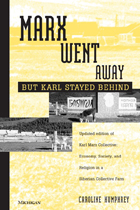
Now this classic work is back in print in a revised edition that adds new material from the author's most recent research in the former Soviet Union. In two new chapters she documents what has happened to the two farms in the collapsing Russian economy. She finds that collective farms are still the dominant agricultural forms, not out of nostalgic sentiment or loyalty to the Soviet ideal, but from economic and political necessity.
Today the collectives are based on households and small groups coming together out of choice. There have been important resurgences in "traditional" thinking about kinship, genealogy, shamanism and mountain cults; and yet all of this is newly formed by its attempt to deal with post-Soviet realities.
Marx Went Away will appeal to students and scholars of anthropology, political science, economics, and sociology.
"The book should be on the shelf of every student of Soviet affairs." --Times Literary Supplement
Caroline Humphrey is Fellow of King's College and Lecturer in Social Anthropology, University of Cambridge.
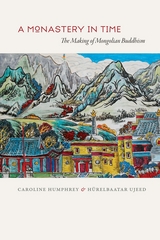
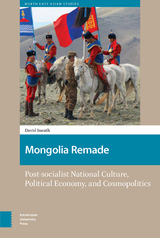
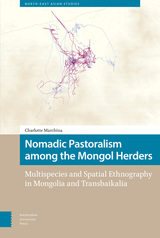

A pioneering examination of history, current affairs, and daily life along the Russia–China border, one of the world’s least understood and most politically charged frontiers.
The border between Russia and China winds for 2,600 miles through rivers, swamps, and vast taiga forests. It’s a thin line of direct engagement, extraordinary contrasts, frequent tension, and occasional war between two of the world’s political giants. Franck Billé and Caroline Humphrey have spent years traveling through and studying this important yet forgotten region. Drawing on pioneering fieldwork, they introduce readers to the lifeways, politics, and history of one of the world’s most consequential and enigmatic borderlands.
It is telling that, along a border consisting mainly of rivers, there is not a single operating passenger bridge. Two different worlds have emerged. On the Russian side, in territory seized from China in the nineteenth century, defense is prioritized over the economy, leaving dilapidated villages slumbering amid the forests. For its part, the Chinese side is heavily settled and increasingly prosperous and dynamic. Moscow worries about the imbalance, and both governments discourage citizens from interacting. But as Billé and Humphrey show, cross-border connection is a fact of life, whatever distant authorities say. There are marriages, friendships, and sexual encounters. There are joint businesses and underground deals, including no shortage of smuggling. Meanwhile some indigenous peoples, persecuted on both sides, seek to “revive” their own alternative social groupings that span the border. And Chinese towns make much of their proximity to “Europe,” building giant Russian dolls and replicas of St. Basil’s Cathedral to woo tourists.
Surprising and rigorously researched, On the Edge testifies to the rich diversity of an extraordinary world haunted by history and divided by remote political decisions but connected by the ordinary imperatives of daily life.
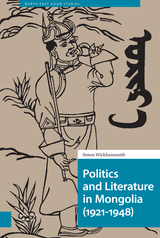
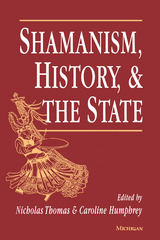
Contributors are Tamsyn Barton, Sysan Bayly, Mary Beard, Maurice Bloch, Peter Gow, Roberte N. Hamayon, Stephen Hugh-Jones, Caroline Humphrey, and Nicholas Thomas.
"The importance of this collection lies in the painstaking, many-sided ways in which it shows 'shamanism' to be a multifarious and continuously changing 'dialogue' or interaction with specific, local contexts. . . . Thus, rather than tackling the issue in principle, this collection tries to demonstrate through 'case studies' just how different 'shamanism' becomes if seen through a lens sensitive to history and the influence of institutions, such as the state, which seem far removed from it. I think the demonstrations add up to an impressive force." --Michael Taussig
"This new, ably edited volume provides . . . chapters that are rich in historic detail and that provide insights into general cultural processes and social interactions." --Historian
Nicholas Thomas is Queen Elizabeth II Research Fellow, Department of Prehistory and Anthropology, Australian National University, Canberra. He is the author of Out of Time: History and Evolution in Anthropological Discourse. Caroline Humphrey, author of Karl Marx Collective: Economy, Society and Religion in a Siberian Collective Farm, is Fellow of King's College and Lecturer in Social Anthropology, University of Cambridge.

READERS
Browse our collection.
PUBLISHERS
See BiblioVault's publisher services.
STUDENT SERVICES
Files for college accessibility offices.
UChicago Accessibility Resources
home | accessibility | search | about | contact us
BiblioVault ® 2001 - 2024
The University of Chicago Press









